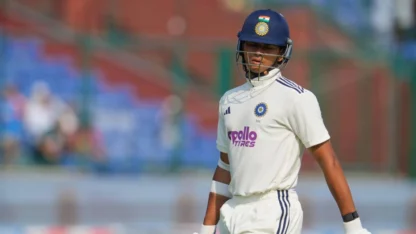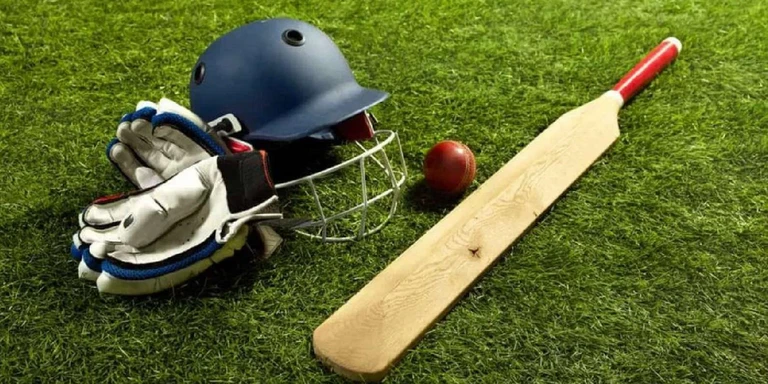ICC New Rules – IND vs SA 2nd T20 – Rohit Sharma and Co will have to be mindful when they begin proceedings in Guwhati with the ICC new rules now being applicable. The International Cricket Council (ICC) had earlier announced a host of changes to the playing conditions starting on October 1. The first international match under the new rules will be between Bangladesh vs Thailand in Women’s Asia Cup. Follow India vs South Africa LIVE Updates on Insidesport.IN
India T20 WC SQUAD: Hardik Pandya training SUPER-HARD for T20 World CUP, Watch…
IND-L vs SL-L Highlights: Naman Ojha CENTURY, Vinay Kumar’s all-round show hands Sachin…
ICC New Rules: Rohit Sharma & Co set to EMBRACE new ICC rules in Guwahati, Women’s Asia Cup to be first international match under new laws, Check OUT
Deepti Sharma’s mankad last week is now officially a run out with the new ICC rules in effect starting October 1. The ICC have made wholesale changes ahead of the T20 World Cup including the permanent ban on saliva. Also at the fall of a wicket, a new batsman will take strike with crossing effectively coming to an end.
The India vs South Africa clash will be the first taste of the new rules for Rohit Sharma and Co. With just two games and two warm-up matches to go before the tournament, the Men in Blue will hope to get the changes in their stride before heading to Australia.
ICC New Rules: Here’s some of the key changes
Permanent ban on saliva
The ICC had banned the use of saliva to shine the ball in the wake of the COVID-19 pandemic over the last couple of years. Players have since used their sweat to retain the shine of the delivery longer in all formats of the game. That is set to continue now with the permanent ban on saliva usage.
“The ban on saliva use has been in place for over two years in international cricket as a Covid-related temporary measure and it is considered appropriate for the ban to be made permanent,” an ICC statement said.
New batsman on strike
At the fall of a wicket, the new batsman will take strike as per the latest rule amendment. Crossing is now ineffective unless the wicket is a run-out. Also, the new batter will now be required to be ready to take strike within two minutes in Tests and ODIs, while the current threshold of 90 seconds in T20Is remains unchanged. Failing to do so, the fielding captain can appeal for timed out.
Non-striker run out
The new ICC rules have moved the non-striker runout from the unfair play section to runouts. Previously looked down as unfair play, running out a non-striker for backing up too much will now be considered a regular run-out. The rule states there isn’t a need for a warning, and teams can effectively whip the bails off if a batter is backing up too much.

Striker’s right to play the ball
Should the batsman venture out of the pitch to play a delivery, the umpire will call and signal Dead ball. Some part of the body or bat has to remain on the pitch at all times. Furthermore, Any ball which would force the batter to leave the pitch will also be called No ball.
Unfair movement by the fielding side
Any unfair and deliberate movement while the bowler is running into bowl could now result in the umpire awarding five penalty runs to the batting side, in addition to a call of Dead ball.
Bowler throwing towards striker’s end before delivery
Previously, a bowler who saw the batter advancing down the wicket before entering their delivery stride, could throw the ball to attempt to Run out the striker. This practice will now be called a Dead ball.
Over-rate penalty
The in-match penalty introduced in T20Is in January 2022, will now also be adopted in ODI matches after the completion of the ICC Men’s Cricket World Cup Super League in 2023. The failure of a fielding team to bowl their overs by the scheduled cessation time leads to an additional fielder having to be brought inside the fielding circle for the remaining overs of the innings. The India vs South Africa ODI series will also feature this change.
ICC New Rules: Rohit Sharma & Co set to EMBRACE new ICC rules in Guwahati, Women’s Asia Cup to be first international match under new laws, Check OUT
Editor's Pick
 Cricket
Yashasvi Jaiswal could miss few Vijay Hazare Trophy matches, lost 2 kilos due to food poisoning
Cricket
Yashasvi Jaiswal could miss few Vijay Hazare Trophy matches, lost 2 kilos due to food poisoning















































